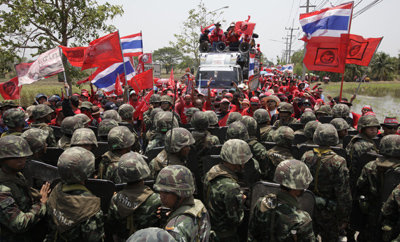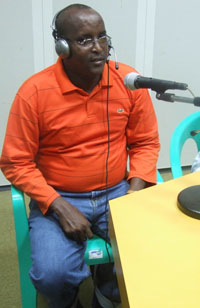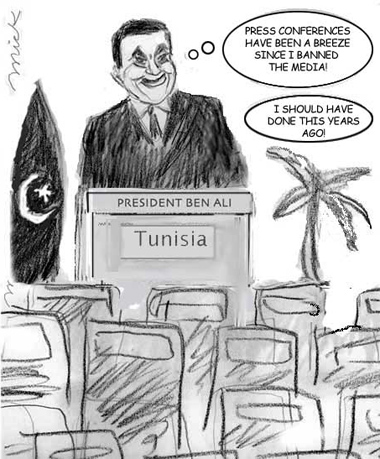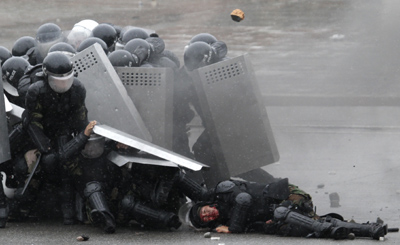
Reuters cameraman killed in Thai political violence
New York, April 12, 2010—The Committee to Protect Journalists is saddened and outraged by the fatal shooting of Reuters cameraman Hiro Muramoto during armed exchanges between government soldiers and antigovernment protestors on Saturday. Muramoto, left, a Japanese national, was shot in the chest while filming an early-afternoon confrontation and was pronounced dead at a Bangkok…

Emergency censorship deepens unrest in Thailand
New York, April 9, 2010—The Thai government should restore access to news outlets censored after a state of emergency was declared Wednesday in response to antigovernment protests, the Committee to Protect Journalists said today. Journalists reporting on the unrest are increasingly vulnerable to physical assault as clashes between protesters and authorities escalate.

Somali insurgents ban BBC
New York, April 9, 2010—Al-Shabaab insurgents in Somalia have banned all BBC broadcasts from the areas they control and confiscated the corporation’s FM transmitters and satellite dishes. Local journalists told CPJ that Al-Shabaab issued a statement today announcing the immediate ban, claiming the BBC carried the “agenda of the crusaders” and “opposed an Islamic administration.”
CPJ asks Obama to raise poor press record with Kazakhstan
Dear President Obama: In advance of your April 12 meeting in Washington with Kazakh President Nursultan Nazarbayev, we’d like to draw your attention to the deteriorating press freedom conditions in Kazakhstan. Unchecked violence and the arrest of independent reporters, politicized prosecution and harassment of critical outlets, and draconian media and Internet regulation laws tarnish the record of the current chair of the Organization for Security and Co-operation in Europe (OSCE).
Gag order lifted in Israeli military leaks case
The Committee to Protect Journalists issued the following statement after learning that a months-long gag order was lifted today. The gag order prevented Israeli media from reporting on the case of a soldier charged with “harming national security” who is under house arrest for leaking documents that allegedly show that the military violated an Israeli…
Fiji’s draft media decree threatens long-term restrictions
New York, April 7, 2010—Fiji’s military regime should withdraw a draft decree that would regulate media ownership and news content, while authorizing the imposition of fines and prison terms for violations, the Committee to Protect Journalists said today.

A distorted picture from Iraq
The Iraqi government is keeping photographers away from scenes of suicide attacks, according to a piece published today by Stephen Farrell on The New York Times’ “At War” blog. CPJ has objected to government regulations promulgated in May 2007 barring photographers from the scene of such bombings for an hour after they take place.

A perfect press conference in Tunisia
The government of President Zine El Abidine Ben Ali has made it clear there is little room for a critical press in Tunisia. Taking a cue from the government’s recent anti-press actions, CPJ cartoonist Mick Stern imagines the president’s “ideal” press conference. See more Mick Stern cartoons.

China imposed strict controls on Google coverage
Our friends at China Digital Times have translated recent orders from China’s State Council Information Office to domestic news organizations and Web sites about how to handle the country’s ongoing dispute with Google. We’re posting an excerpt here, but please read the whole link. There’s a great discussion about government censors’ plans for monitoring social…
